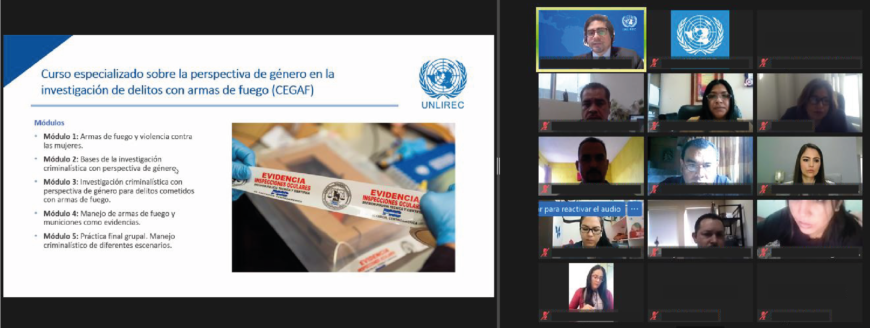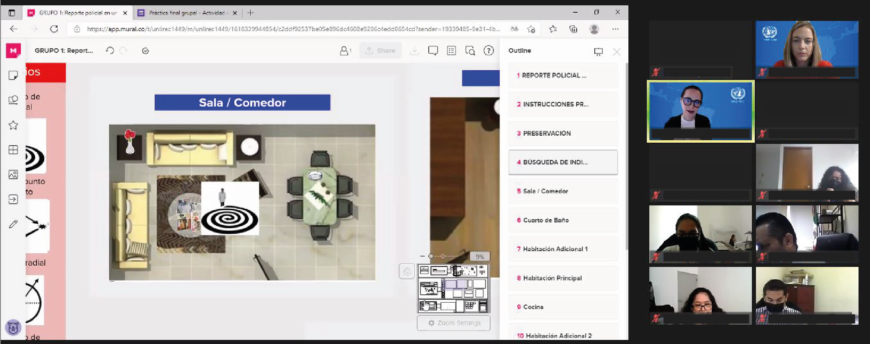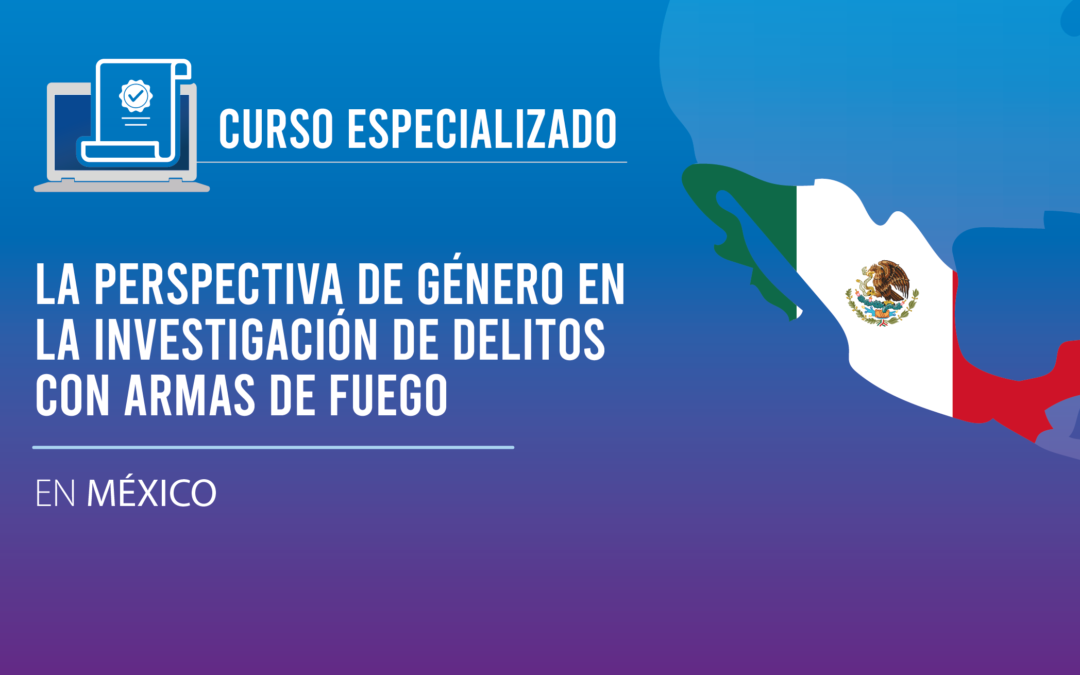From 30 August to 10 September 2021, the United Nations Regional Centre for Peace, Disarmament and Development in Latin America and the Caribbean (UNLIREC), in cooperation with the National Institute of Women and the Secretariat of International Relations of Mexico, carried out the Specialised Course on Gender Perspective in the Investigation of Crimes involving Firearms (CEGAF).
Thanks to the collaboration of the Attorney General’s Office, it was possible to summon more than 40 prosecutors, prosecutors, criminal experts and investigative police from the Attorney General’s Offices of 28 States of Mexico (units specialized in femicide, gender-based crimes, criminalistics and expert services) to attend the meeting.
The CEGAF course, in addition to helping sensitize participants about the importance of gender perspective in crimes committed with firearms, also strengthens the technical knowledge applicable to the scientific method of criminal investigation, as well as interinstitutional cooperation in these areas.

The federal composition of the group’s members made it possible to exchange different realities and challenges they face. Emphasis was also placed on the need to strengthen the coordination and cooperation of the participating personnel in order to optimize their individual and collective efforts to deal with crimes related to violence against women (VAW) and firearms.
The course was developed virtually and distributed in six interactive meetings, in which the participants were able to contribute their experiences and speak with UNLIREC instructors. The theoretical and technical aspects of criminal investigations were addressed and the way in which the gender perspective – as a method of analysis – contributes to the formulation of stereotype-free conclusions, supported by objective technical or scientific studies based on the appropriate theory. Case studies were also used throughout the training to raise awareness of the absence of a gender perspective and the violation of rights that it causes in the victims and their families.

During the training, emphasis was placed on the use of firearms to commit different types of VAW, that is, not only when it is involved as a murder weapon, but also when it is used as an instrument to threaten, intimidate and coerce. The importance of the correct handling of the crime scene and of firearms and ammunition as physical evidence in the investigation with a gender perspective of crimes against women was highlighted. Finally, good practices were shared and participants were urged to strengthen the articulation and cooperation between all the actors involved in the different stages of the judicial investigation in order to optimize their individual and collective efforts to deal with crimes related to firearms with special attention to cases of gender-based violence, thus helping to reduce the levels of impunity and strengthen the capacities of the institutions of the justice and security sectors.

This activity forms part of the project entitled “Support for the integration of the gender perspective in policies, programs and actions in the fight against trafficking and misuse of small arms” funded by the European Union.

